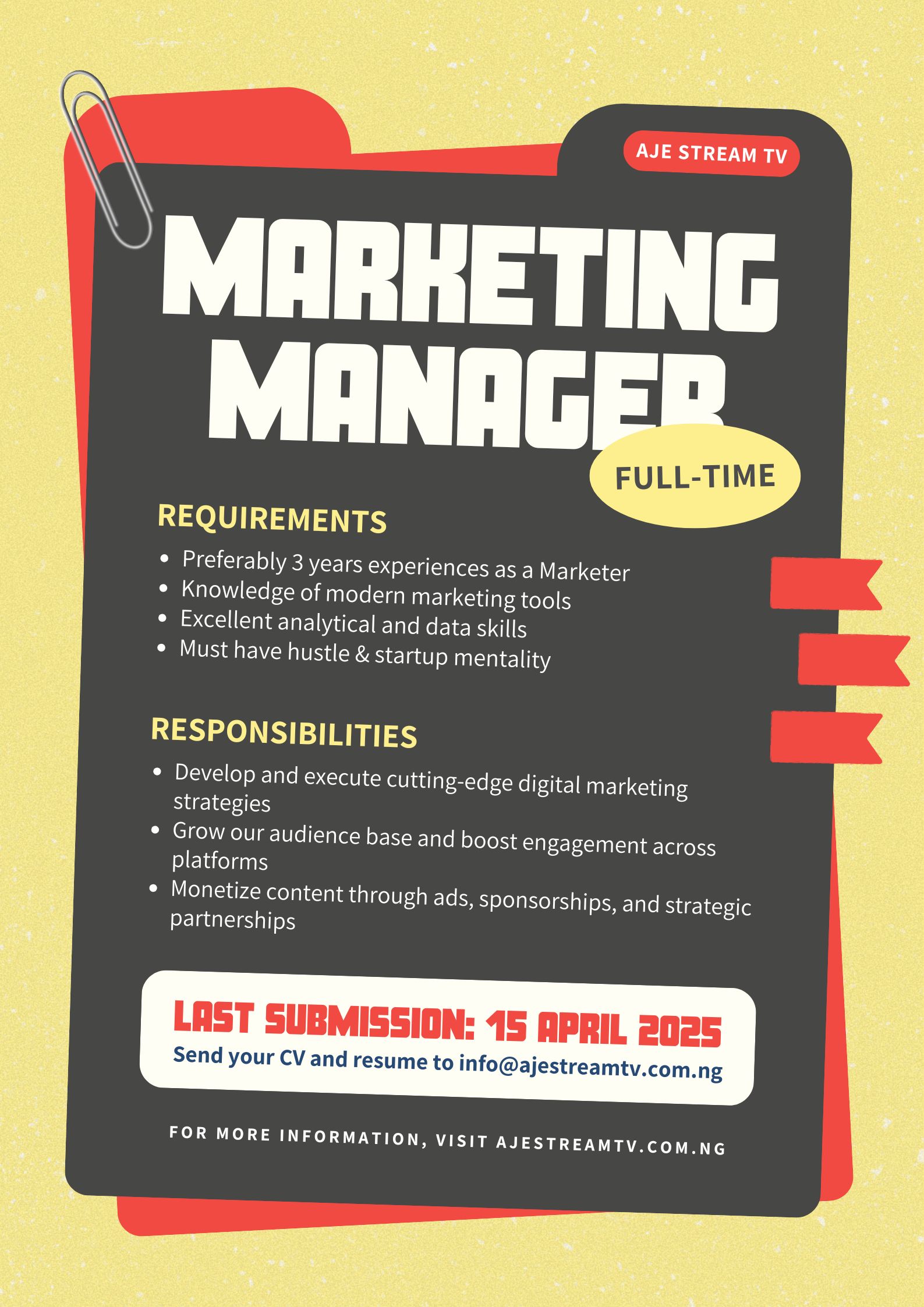Nigeria in its marine safety effort has contributed over 85,000 square kilometers to the global seabed mapping initiative as ways of accelerating ocean efforts for the benefit of the planet.
The Hydrographer of the Federation, Rear Admiral Ayodeji Olugbode, revealed this on Tuesday during a press conference on World Hydrography Day celebration and West Africa Hydrographic Summit.
He said that despite oceans covering 71% of the earth’s surface, only 26.1% has been mapped, hindering effective ocean governance.
Rear Admiral Olugbod noted that the West Africa Hydrographic Summit, scheduled for June 19 to 21 in Abuja, will bring together ECOWAS Navies to discuss challenges and opportunities in maritime governance.
According to him, hydrography is the backdrop of maritime safety, economic development, and environmental sustainability, as well as ocean governance.
“The summit will chart the course for the future of hydrography in our region towards a global action.
“In 2025, we aim to firstly strengthen regional collaboration through the main West African Hydrographic Summit, foster joint surveys, and sharing data platforms, both virtual and institutionally.
“Two, we aim to feature keynote lectures and presentations, advocating hydrography and seabed to support the Seabed 2030 Initiative, a global program critical for the safety of navigation, climate resilience, environmental stewardship, and economic growth of the world.
“Thirdly, we hope to showcase innovations in hydrography technology through exhibitions and live demonstrations. Last year, we celebrated the role of hydrography in maritime safety. This year, we took a bold step by addressing regional gaps and aligning with global frameworks as well as regional frameworks, like the African-Continental Free Trade Agreement, the United Nations Sustainable Goal 12, titled Life Below Water.
“This emphasizes the critical importance of the ocean and marine resources to human well-being and the planet and the health of the planet…which is a critical factor for the sustenance of mankind.
”In recognizing the ocean as vital for food security, economic growth, and the overall health of the environment, the goal aims to address the challenges facing the marine ecosystem, including pollution, overfishing, and habitat destruction.” Olugbode stated.
Rear Admiral Olugbode further noted that, at the national level, the National Hydrographic Office has effectively mapped the Lagos and Calabar coastal line under the national charting scheme.
“There are some things that we put into place: the mapping and the water. One is the density of shipping traffic, which Lagos has.
“Second, is the mobility of the seabed. How often does the seabed move, and that will determine, and this determines the rapidity in which we map.” he said.
He stated that the next area for mapping is the Bonny, adding that the mapping process is being conducted systematically to aid marine safety.
MARINE SAFETY: Nigeria Contributes 85, 325 Sqkm to Global Seabed Mapping Initiative
LEAVE A REPLY
Nigeria in its marine safety effort has contributed over 85,000 square kilometers to the global seabed mapping initiative as ways of accelerating ocean efforts for the benefit of the planet.
The Hydrographer of the Federation, Rear Admiral Ayodeji Olugbode, revealed this on Tuesday during a press conference on World Hydrography Day celebration and West Africa Hydrographic Summit.
He said that despite oceans covering 71% of the earth’s surface, only 26.1% has been mapped, hindering effective ocean governance.
Rear Admiral Olugbod noted that the West Africa Hydrographic Summit, scheduled for June 19 to 21 in Abuja, will bring together ECOWAS Navies to discuss challenges and opportunities in maritime governance.
According to him, hydrography is the backdrop of maritime safety, economic development, and environmental sustainability, as well as ocean governance.
“The summit will chart the course for the future of hydrography in our region towards a global action.
“In 2025, we aim to firstly strengthen regional collaboration through the main West African Hydrographic Summit, foster joint surveys, and sharing data platforms, both virtual and institutionally.
“Two, we aim to feature keynote lectures and presentations, advocating hydrography and seabed to support the Seabed 2030 Initiative, a global program critical for the safety of navigation, climate resilience, environmental stewardship, and economic growth of the world.
“Thirdly, we hope to showcase innovations in hydrography technology through exhibitions and live demonstrations. Last year, we celebrated the role of hydrography in maritime safety. This year, we took a bold step by addressing regional gaps and aligning with global frameworks as well as regional frameworks, like the African-Continental Free Trade Agreement, the United Nations Sustainable Goal 12, titled Life Below Water.
“This emphasizes the critical importance of the ocean and marine resources to human well-being and the planet and the health of the planet…which is a critical factor for the sustenance of mankind.
”In recognizing the ocean as vital for food security, economic growth, and the overall health of the environment, the goal aims to address the challenges facing the marine ecosystem, including pollution, overfishing, and habitat destruction.” Olugbode stated.
Rear Admiral Olugbode further noted that, at the national level, the National Hydrographic Office has effectively mapped the Lagos and Calabar coastal line under the national charting scheme.
“There are some things that we put into place: the mapping and the water. One is the density of shipping traffic, which Lagos has.
“Second, is the mobility of the seabed. How often does the seabed move, and that will determine, and this determines the rapidity in which we map.” he said.
He stated that the next area for mapping is the Bonny, adding that the mapping process is being conducted systematically to aid marine safety.
-
[…] policy, making safety a non-negotiable priority. Speaking on behalf of the Kwara State Government, the Secretary to the state Government, Prof. Mamman Saba Jibril, commended the Federal Government […]
LEAVE A REPLY
Nigeria in its marine safety effort has contributed over 85,000 square kilometers to the global seabed mapping initiative as ways of accelerating ocean efforts for the benefit of the planet.
The Hydrographer of the Federation, Rear Admiral Ayodeji Olugbode, revealed this on Tuesday during a press conference on World Hydrography Day celebration and West Africa Hydrographic Summit.
He said that despite oceans covering 71% of the earth’s surface, only 26.1% has been mapped, hindering effective ocean governance.
Rear Admiral Olugbod noted that the West Africa Hydrographic Summit, scheduled for June 19 to 21 in Abuja, will bring together ECOWAS Navies to discuss challenges and opportunities in maritime governance.
According to him, hydrography is the backdrop of maritime safety, economic development, and environmental sustainability, as well as ocean governance.
“The summit will chart the course for the future of hydrography in our region towards a global action.
“In 2025, we aim to firstly strengthen regional collaboration through the main West African Hydrographic Summit, foster joint surveys, and sharing data platforms, both virtual and institutionally.
“Two, we aim to feature keynote lectures and presentations, advocating hydrography and seabed to support the Seabed 2030 Initiative, a global program critical for the safety of navigation, climate resilience, environmental stewardship, and economic growth of the world.
“Thirdly, we hope to showcase innovations in hydrography technology through exhibitions and live demonstrations. Last year, we celebrated the role of hydrography in maritime safety. This year, we took a bold step by addressing regional gaps and aligning with global frameworks as well as regional frameworks, like the African-Continental Free Trade Agreement, the United Nations Sustainable Goal 12, titled Life Below Water.
“This emphasizes the critical importance of the ocean and marine resources to human well-being and the planet and the health of the planet…which is a critical factor for the sustenance of mankind.
”In recognizing the ocean as vital for food security, economic growth, and the overall health of the environment, the goal aims to address the challenges facing the marine ecosystem, including pollution, overfishing, and habitat destruction.” Olugbode stated.
Rear Admiral Olugbode further noted that, at the national level, the National Hydrographic Office has effectively mapped the Lagos and Calabar coastal line under the national charting scheme.
“There are some things that we put into place: the mapping and the water. One is the density of shipping traffic, which Lagos has.
“Second, is the mobility of the seabed. How often does the seabed move, and that will determine, and this determines the rapidity in which we map.” he said.
He stated that the next area for mapping is the Bonny, adding that the mapping process is being conducted systematically to aid marine safety.
-
[…] policy, making safety a non-negotiable priority. Speaking on behalf of the Kwara State Government, the Secretary to the state Government, Prof. Mamman Saba Jibril, commended the Federal Government […]
LEAVE A REPLY
Nigeria in its marine safety effort has contributed over 85,000 square kilometers to the global seabed mapping initiative as ways of accelerating ocean efforts for the benefit of the planet.
The Hydrographer of the Federation, Rear Admiral Ayodeji Olugbode, revealed this on Tuesday during a press conference on World Hydrography Day celebration and West Africa Hydrographic Summit.
He said that despite oceans covering 71% of the earth’s surface, only 26.1% has been mapped, hindering effective ocean governance.
Rear Admiral Olugbod noted that the West Africa Hydrographic Summit, scheduled for June 19 to 21 in Abuja, will bring together ECOWAS Navies to discuss challenges and opportunities in maritime governance.
According to him, hydrography is the backdrop of maritime safety, economic development, and environmental sustainability, as well as ocean governance.
“The summit will chart the course for the future of hydrography in our region towards a global action.
“In 2025, we aim to firstly strengthen regional collaboration through the main West African Hydrographic Summit, foster joint surveys, and sharing data platforms, both virtual and institutionally.
“Two, we aim to feature keynote lectures and presentations, advocating hydrography and seabed to support the Seabed 2030 Initiative, a global program critical for the safety of navigation, climate resilience, environmental stewardship, and economic growth of the world.
“Thirdly, we hope to showcase innovations in hydrography technology through exhibitions and live demonstrations. Last year, we celebrated the role of hydrography in maritime safety. This year, we took a bold step by addressing regional gaps and aligning with global frameworks as well as regional frameworks, like the African-Continental Free Trade Agreement, the United Nations Sustainable Goal 12, titled Life Below Water.
“This emphasizes the critical importance of the ocean and marine resources to human well-being and the planet and the health of the planet…which is a critical factor for the sustenance of mankind.
”In recognizing the ocean as vital for food security, economic growth, and the overall health of the environment, the goal aims to address the challenges facing the marine ecosystem, including pollution, overfishing, and habitat destruction.” Olugbode stated.
Rear Admiral Olugbode further noted that, at the national level, the National Hydrographic Office has effectively mapped the Lagos and Calabar coastal line under the national charting scheme.
“There are some things that we put into place: the mapping and the water. One is the density of shipping traffic, which Lagos has.
“Second, is the mobility of the seabed. How often does the seabed move, and that will determine, and this determines the rapidity in which we map.” he said.
He stated that the next area for mapping is the Bonny, adding that the mapping process is being conducted systematically to aid marine safety.
-
[…] policy, making safety a non-negotiable priority. Speaking on behalf of the Kwara State Government, the Secretary to the state Government, Prof. Mamman Saba Jibril, commended the Federal Government […]



[…] policy, making safety a non-negotiable priority. Speaking on behalf of the Kwara State Government, the Secretary to the state Government, Prof. Mamman Saba Jibril, commended the Federal Government […]